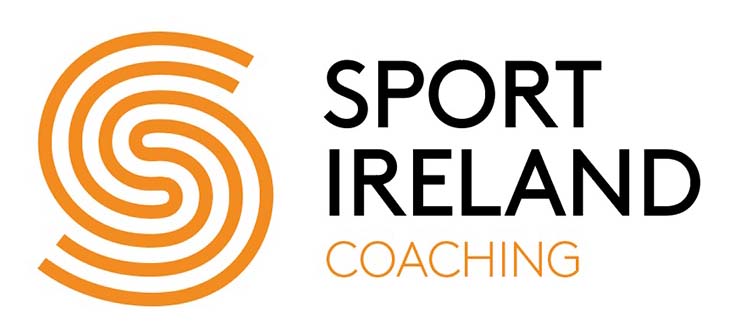MISSION STATEMENT
We are committed to the provision of a complete training and maximising archer’s potential to
the highest possible standards through a highly dedicated committee, coaches and managers.
We strive to create an atmosphere of mutual respect in a happy, caring, supportive but
challenging and well structured environment.
“A demanding environment can also be a caring environment.”
Facts about Bullying:
- Bullying causes pain and distress to victims
- Bullies often think the victim deserves this treatment
- Bullies can emerge at any age, at any stage of life, from any social background.
- Bullies are not always easily recognisable
- Nobody is completely safe all the time from bullies.
- The bully is as much in need of help as their victim
Our definition of Bullying:
Bullying can be defined as repeated aggression, be it verbal, psychological or physical, conducted by an individual or group against others.
It is behavior that is intentionally aggravating and intimidating and occurs mainly in social environments such as school, sports or social clubs and other organizations
Working with young people. – Bullying also affects any person who witnesses it, there are no innocent bystanders in Bullying.
It includes verbal bullying such as lies, slagging, taunting, threatening, rumours, name calling, whispers and abusive language.
There may be physical bullying in the form of pushing, kicking, spitting, messing, hitting and even assault.
It may be intimidating others by deliberate isolation, aggressive body language, silent gestures, ‘The Look’, making noises, abusive notes/letters, phone calls, text messages or emails.
It can also be damaging others property, extortion, isolation and or name calling.
Effects of Bullying :
We in Archery Ireland, recognise that persistent bullying can have devastating effects on a person’s self esteem. Archers who are being bullied may develop feelings of insecurity and extreme anxiety resulting in them feeling that it is somehow ‘their’ fault, or that there is something wrong with them. They very often become withdrawn, more cautious and less willing to take any sort of risk. This is frequently accompanied by a reluctance to talk about what is happening to them, leading to behavioural changes and lowering of academic performance.
The person being bulled may display some or all of the following symptoms:
• Reduced ability to concentrate
• Poor or deteriorating sport’s or work
• Fear of going to or returning to the club
• Loss of confidence and self esteem
• Aggressive behaviour
• Depression
• Become more attention seeking in either positive or negative ways
There are also effects of bullying on the person who bullies. Frequently they are unhappy, have difficult relationships, have been bullied themselves, are isolated, lonely, and feel guilty. They often have low self esteem, are unpopular with their peers and continue on to have problems in school, sport and the workplace.
The Signs and symptoms of Bullying:
Athletes who are bullied may display an unwillingness to go to the club. While in the club there is loss of interest and concentration resulting in sudden deterioration in performance. There may be unexplained changes in moods or behaviour, and many victims display signs of distress and anxiety. Victims are often reluctant to discuss the problem due to fear of reprisals, they may have damaged possessions or clothing, have unexplained cuts or bruises, become isolated and maybe even begin to bully others.
Policy Aims :
In keeping with the philosophy of Archery Ireland, we endeavour to create an atmosphere of mutual respect in a happy, caring, supportive environment among the sports club. We aim to create an ethos and atmosphere in the clubs whereby bullying of any type is seen as unacceptable behaviour by all, including potential perpetrators and victims. We aim to create a situation whereby bullying behaviour is dealt with effectively, fairly and in a manner which will benefit the victim through the acquisition of skills to counter bullying behaviour.
We aim to improve the conduct of the bully by helping him/her through guidance, discussion and ongoing mentoring if necessary, to see the damaging, hurtful nature of this type of behaviour. It is recognised that the bully may be the victim of bullying in the past or present in a different setting.
Action Plan :
• Archery Ireland is committed to implementing an anti- bullying policy.
• The topics included in the programme will be revised from time to time as deemed necessary.
• Time will be devoted to discussions on bullying and ways to deal with it in the organisation.
• Training, booklets, videos, and resources which become available to Archery Ireland will be made available to all clubs through their children’s officers, who will implement the programme.
• Archers will be encouraged to disclose all incidents of bullying behaviour. This will be put into the context of ‘telling to stay safe’ and will be portrayed in a positive manner.
• The Anti- bullying team/person should meet on a regular basis in order to review bullying cases, and take appropriate action to deal with, and record all reported incidents promptly and professionally.
• The Anti-bullying present a report to the Archery Ireland committee at the end of the year, programme will update their skills and evaluate their effectiveness on an ongoing basis
Procedures for Dealing with instances of bullying :
• All incidences of bullying reported will be recorded in an incident book ,which will be retained by each club.
• All incidents of bullying reported will be dealt with promptly by a member of the Anti-bullying team/person within the clubs.
• When there are incidents of more extreme forms of bullying these are reportable to Archery Ireland, and/or An Garda Siochana.
Procedures for Dealing with instances of bullying :
• Anti-Bullying Centre 01 6082573
• CAB – Campaign Against Bullying 01 2887976
• Childline 1800 666660
• Ciitizen Information Centre 01 6601011
• I.S.P.C.C. 01 6794944
• Irish Association for Counselling & Psychotherapy 01 2300061
• The National Association for Parent’s Support 0502 20598
• Parentline 01 8733500
• Samaritans 051 872114






